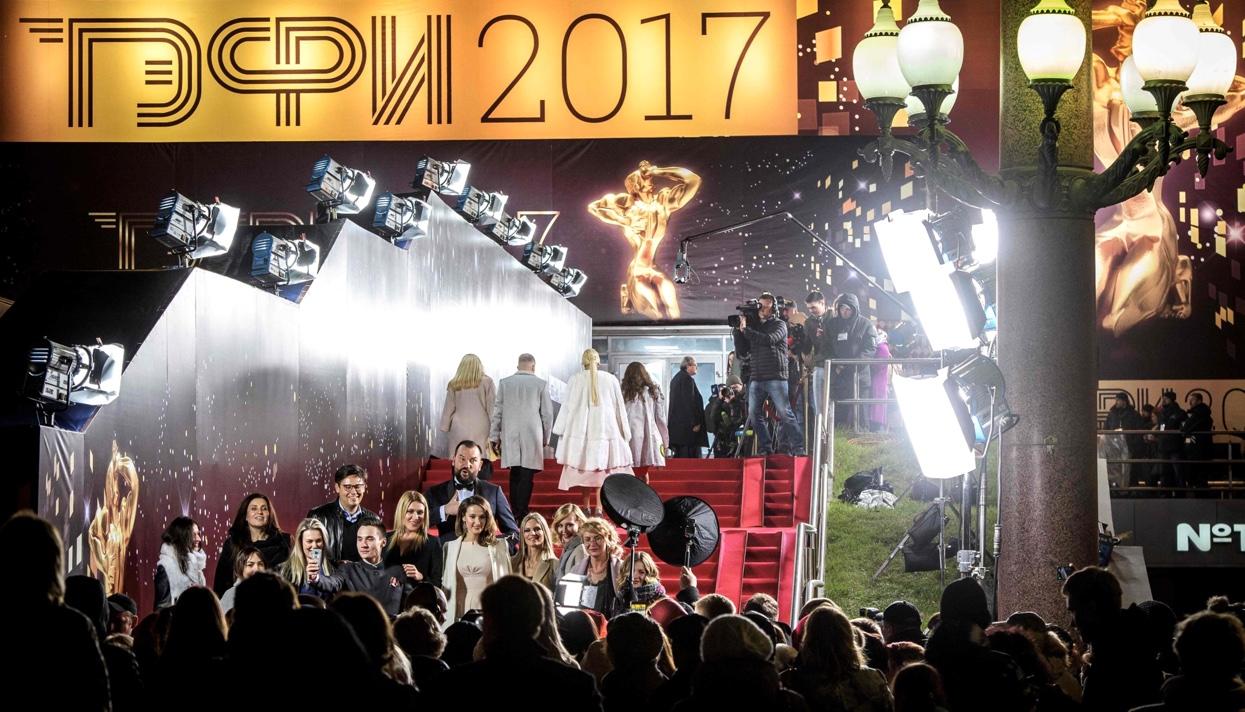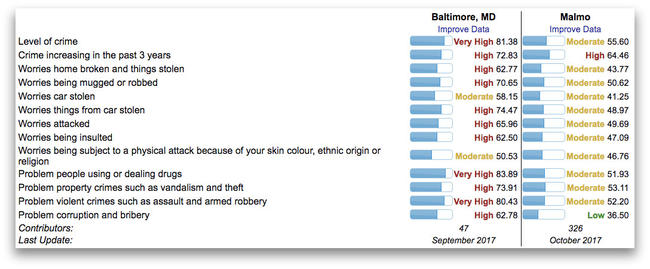
Mladen Antonov / AFP / Scanpix / LETA
By Kevin Rothrock, for Meduza
The Russian Academy of Television announced the winners of its “TEFI” awards this Tuesday, October 3, in a ceremony that resembles the Emmys in the United States. Unlike the Emmys, where winners get statuettes depicting a winged woman holding an atom, taking home a TEFI means pocketing a certificate and a statuette showing Greek mythology’s Orpheus kneeling and tearing at his chest in agony. That sentiment captured a lot of people’s feelings when they heard about this year’s TEFI winners — especially the trophy for “best educational program” that went to Igor Prokopenko, who hosts a TV show that just last week spent 45 minutes exploring the “Flat-Earth Theory.” Writing for the website The Insider, Anna Krasnoperova pointed out that the TEFI winners for “best evening news program” and “best analytical review program” also have a lot to answer for. Meduza summarizes Krasnoperova’s report here.
If you don’t watch Russian television, perhaps you’ve never heard of Pervyi Kanal’s evening news broadcast “Vremya” or Rossiya-1’s weekend review show “Vesti Nedeli,” but they’re two of the most watched and influential news programs in the country. This year, the Russian Academy of Sciences awarded TEFIs to both these largely pro-government TV shows, which air on state-owned networks. As a kind of retrospective, Anna Krasnoperova at The Insider reviewed five of the most notorious fake stories these programs reported in recent years.
1: Alexey Navalny works for the CIA
In April 2016, Dmitry Kiselyov’s “Vesti Nedeli” show aired a report accusing oppositionist and anti-corruption activist Alexey Navalny of cooperating with British and American intelligence agencies. The report was littered with oddities that raise serious questions about its credibility: supposed intelligence agents wrote in poor, bizarre English; an audiotape didn’t match Navalny’s real voice; and, on two occasions, Navalny apparently time traveled, based on the timestamps found on “secret correspondence.”
The report also featured comments by three notoriously unreliable figures: Pavel Karpov, the police investigator who opened the criminal case that was ultimately used to arrest Sergey Magnitsky; Oleg Lurye, a journalist previously imprisoned for blackmailing the wife of a senator; and Alexander Mercouris, a disgraced, disbarred British lawyer who frequently appears in pro-Kremlin media, sometimes identified as a “Greek political analyst” or an “international affairs expert.”
2: The “rape” of Little Lisa
On January 11, 2016, Pervyi Kanal reported a fake story that would later be used in case studies of “Russian disinformation.” When a 13-year-old Russian-German girl named Lisa F. reappeared in Berlin after going missing for three days, she initially claimed that she’d been kidnapped and raped by three Arab migrants. Further investigation debunked this story, however, and Lisa later admitted that she went hiding voluntarily and wasn’t raped.
Even after police refuted the rumors about Lisa’s case, Pervyi Kanal continued airing news segments about her supposed rape. Apparently reacting to the coverage on Russian television, some Russian Germans even staged demonstrations in several parts of Germany to protest what Russian Foreign Ministry Sergey Lavrov called the German authorities’ tendency “to paint over reality in a politically correct manner for domestic reasons.”
A magazine run by NATO later called the Russian media’s coverage of the “Lisa case” a “wake up call for German political elites.”
3: Germany’s Syrian refugee welfare king
Pervyi Kanal was one of many media outlets to report the fake story of a Syrian refugee named “Ghazia A.” living in Germany with his four wives and 23 kids, supposedly pulling down almost half a million bucks in welfare checks. In this same news report, Pervyi Kanal also recycled phony claims (later deleted from its website) that Austria’s Supreme Court acquitted an Iraqi refugee for raping a 10-year-old boy. (In fact, the man was sentenced to several years in prison.)
The report about Ghazia A., which first appeared in the German newspaper Rhein-Zeitung, was based on mostly false information. No German government official ever verified that a Syrian refugee was collecting so much money in benefits, and the “360,000 euros” figure actually comes from a financial expert named Hubert Königsstein, who merely speculated that a man in Ghazia A.’s situation could claim such benefits.
A municipality spokesperson told the German news service Deutsche Welle, however, that this isn’t how benefits work in Germany, where polygamy is prohibited, meaning that the Syrian refugee would have had to select one wife and claim her respective children for any social assistance.
At the end of the segment, Pervyi Kanal’s reporter even intentionally mispronounced Ghazia A.’s name to make a joke.
4: Refugees terrorize the Swedish city of Malmö
On February 19, Pervyi Kanal aired a report from Malmö, describing Sweden’s third biggest city as a “remote corner” of the country transformed into a dystopian hellhole by a “criminal wave” of Arab migrants. The report claimed incorrectly that Muslim immigrants make up 43 percent of the city’s population (in fact, only 32 percent of the city’s residents were born abroad, and far from all of them are Muslim).
Pervyi Kanal also presented Fridhem, a neighborhood in Malmö, as a particularly dangerous area, though local sources told The Insider that it’s actually a generally peaceful place. According to the crowd-sourced global database Numbeo, Malmö’s overall level of crime is “moderate,” scoring it significantly higher than American metropolises like Baltimore and Chicago.

As it happens, a day before Pervyi Kanal‘s report on Malmö, U.S. President Donald Trump made headlines by alluding to a nonexistent terrorist attack in Sweden. “Sweden, who would believe this?” Trump asked a crowd of supporters in Florida.
The president later explained that he was referring to a segment aired on Fox News, where filmmaker Ami Horowitz claimed that migrants in Sweden are responsible for a new crime wave. Two Swedish police officers interviewed in Horowitz’s documentary later told reporters that their comments were edited selectively and taken out of context.
5: Creative dubbing in France
On May 15, “Vesti Nedeli” aired a segment about “the political situation in Europe,” focusing on the “growing Euroskeptic movement in France.” The show’s correspondent interviewed several activists who demonstrated against a new labor law, but the Russian dubbing completely changed their comments, rewriting what they said from start to finish as a rant against immigrants.
Needless to say, French television ridiculed the news report, and even tracked down the protesters interviewed by “Vesti Nedeli,” who were horrified to learn how their comments had been mistranslated for Russian viewers.




